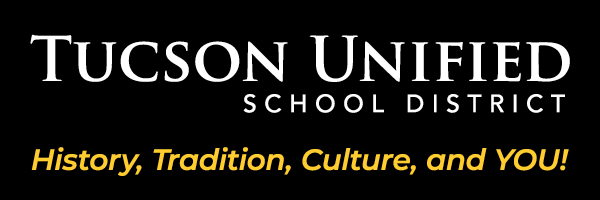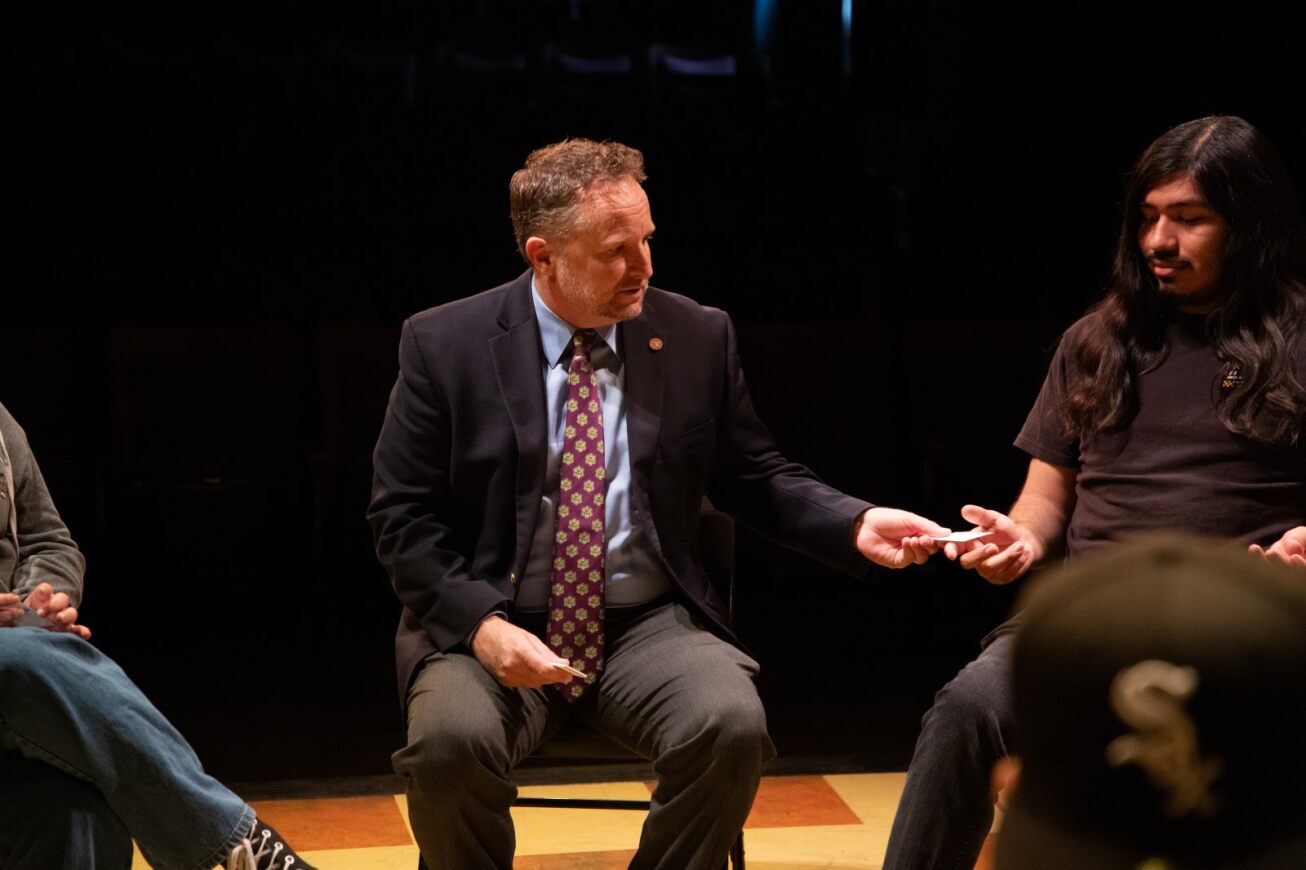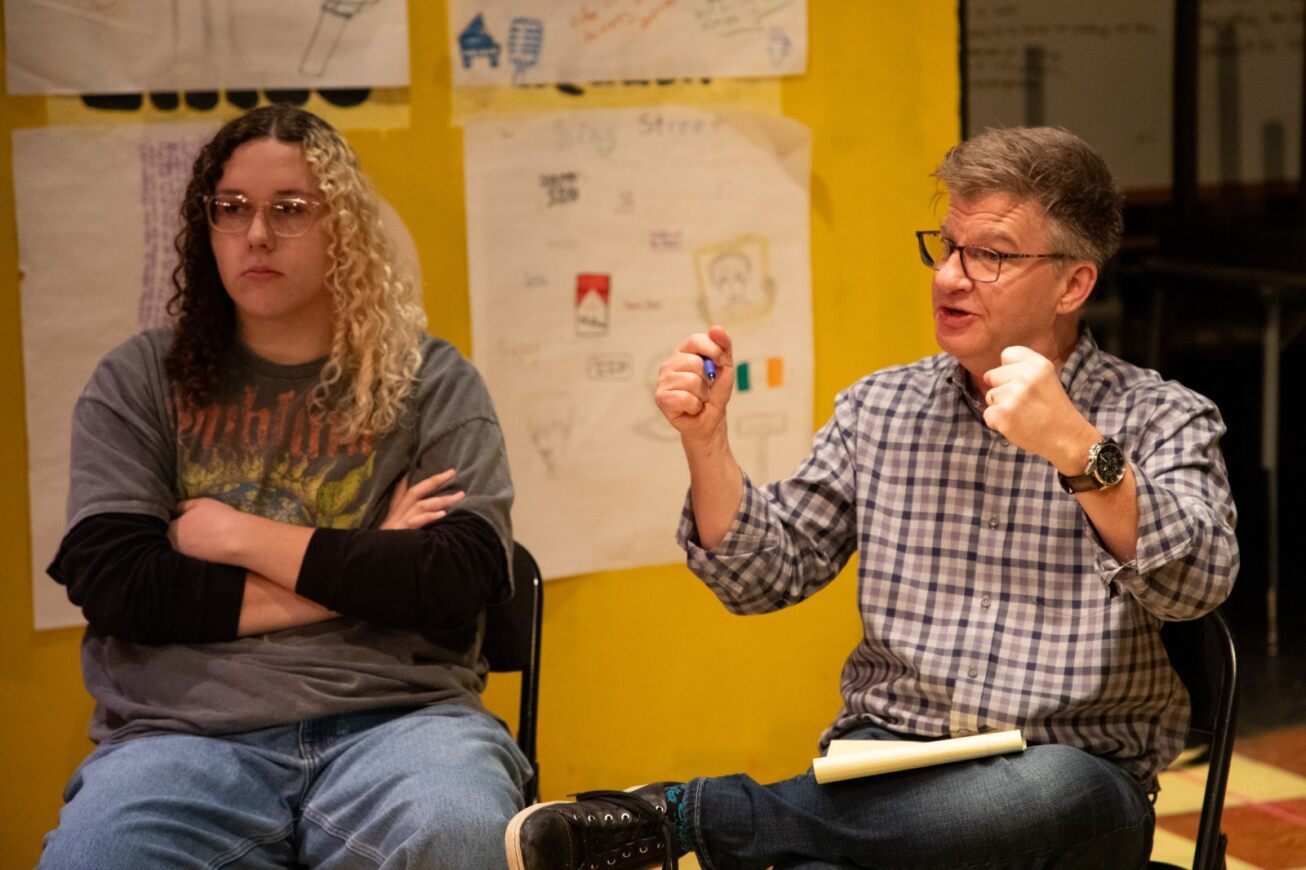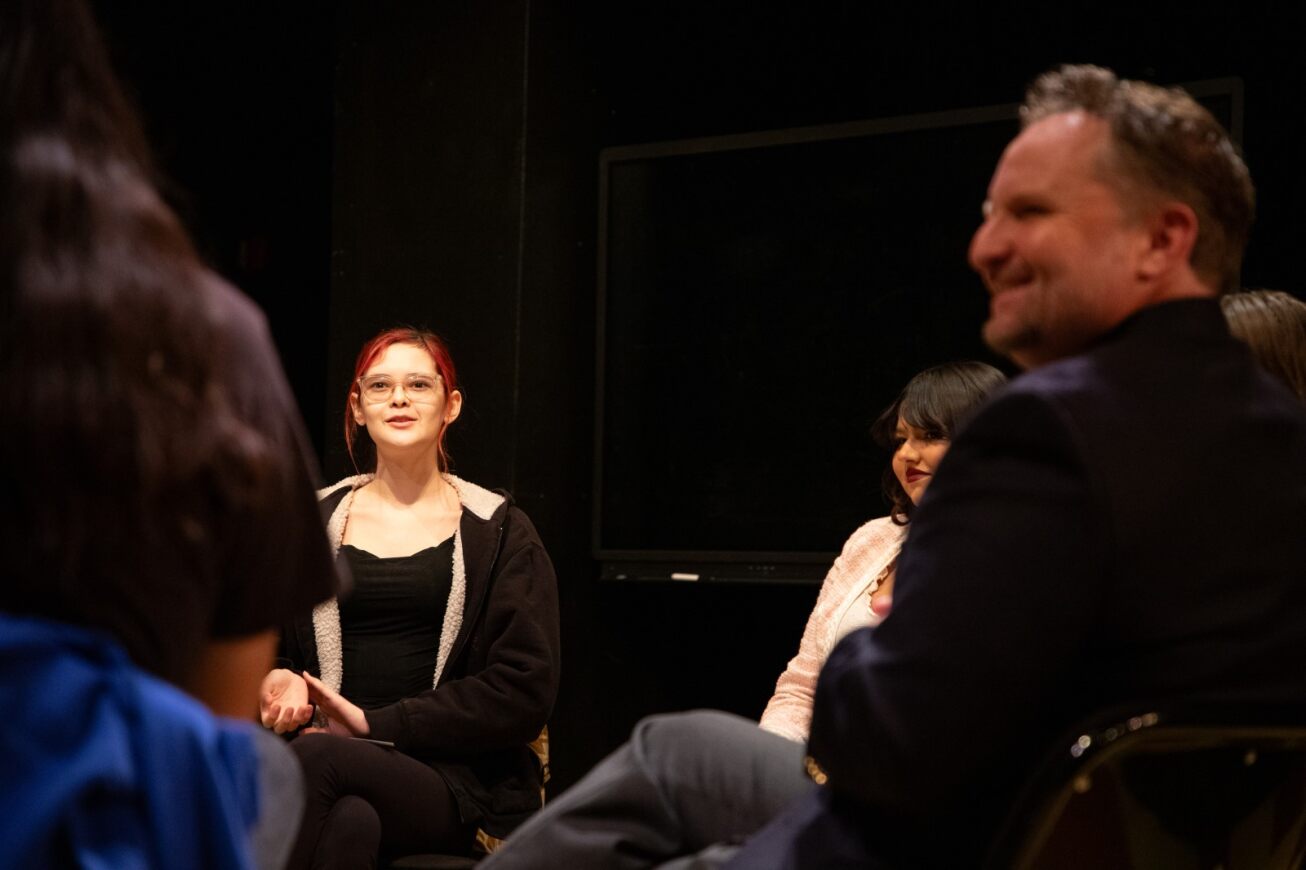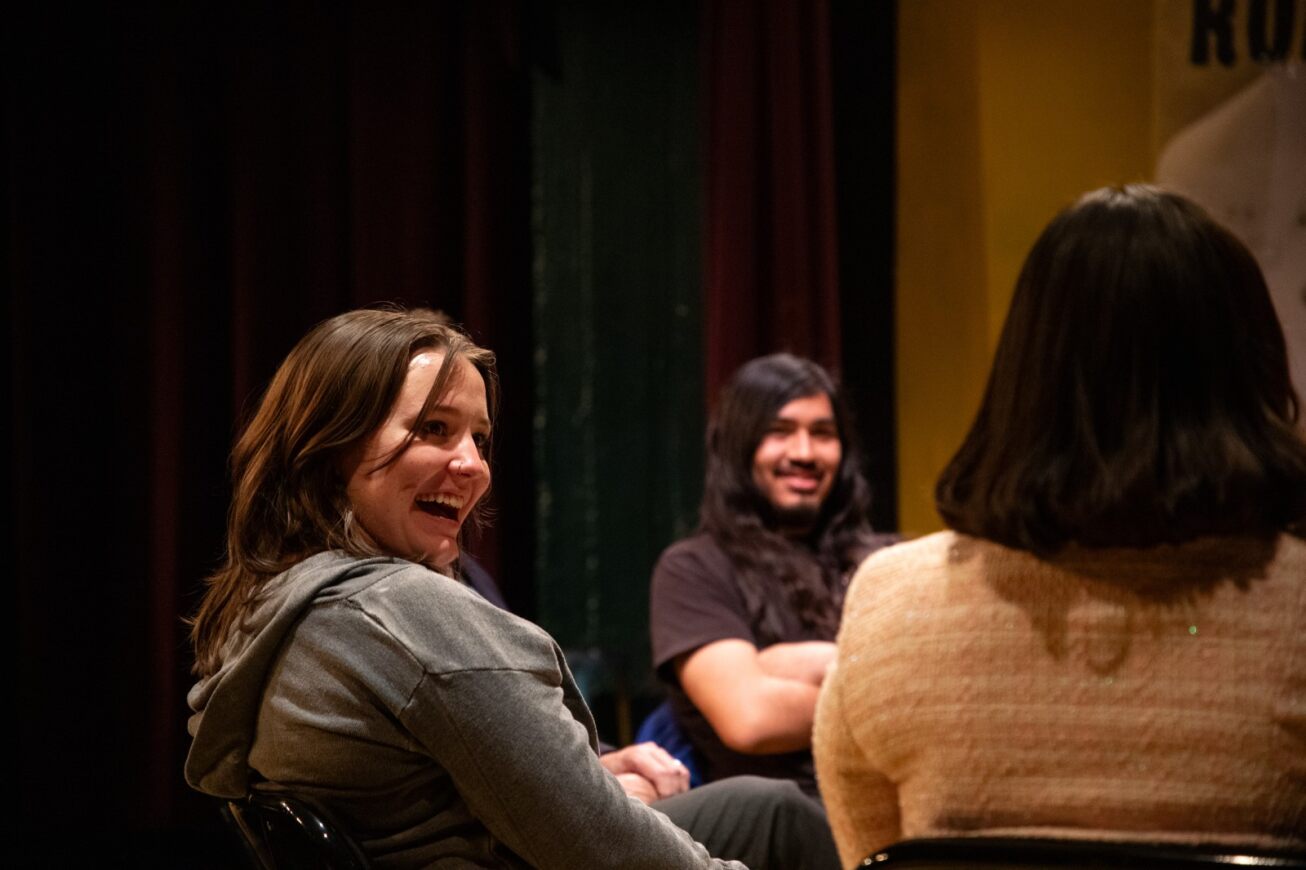Last November, Pima County Superintendent Dustin Williams was touring Tucson High Magnet School when he met a student in the Little Theater that sparked an idea. He wanted to start a talk circle on the arts and how the arts helped them through the pandemic.
Three months later, Williams came back to TMHS and visited the Little Theater to materialize that idea and engaged in an open conversation with nine senior students about the toll the pandemic had on them, both personally and educationally.
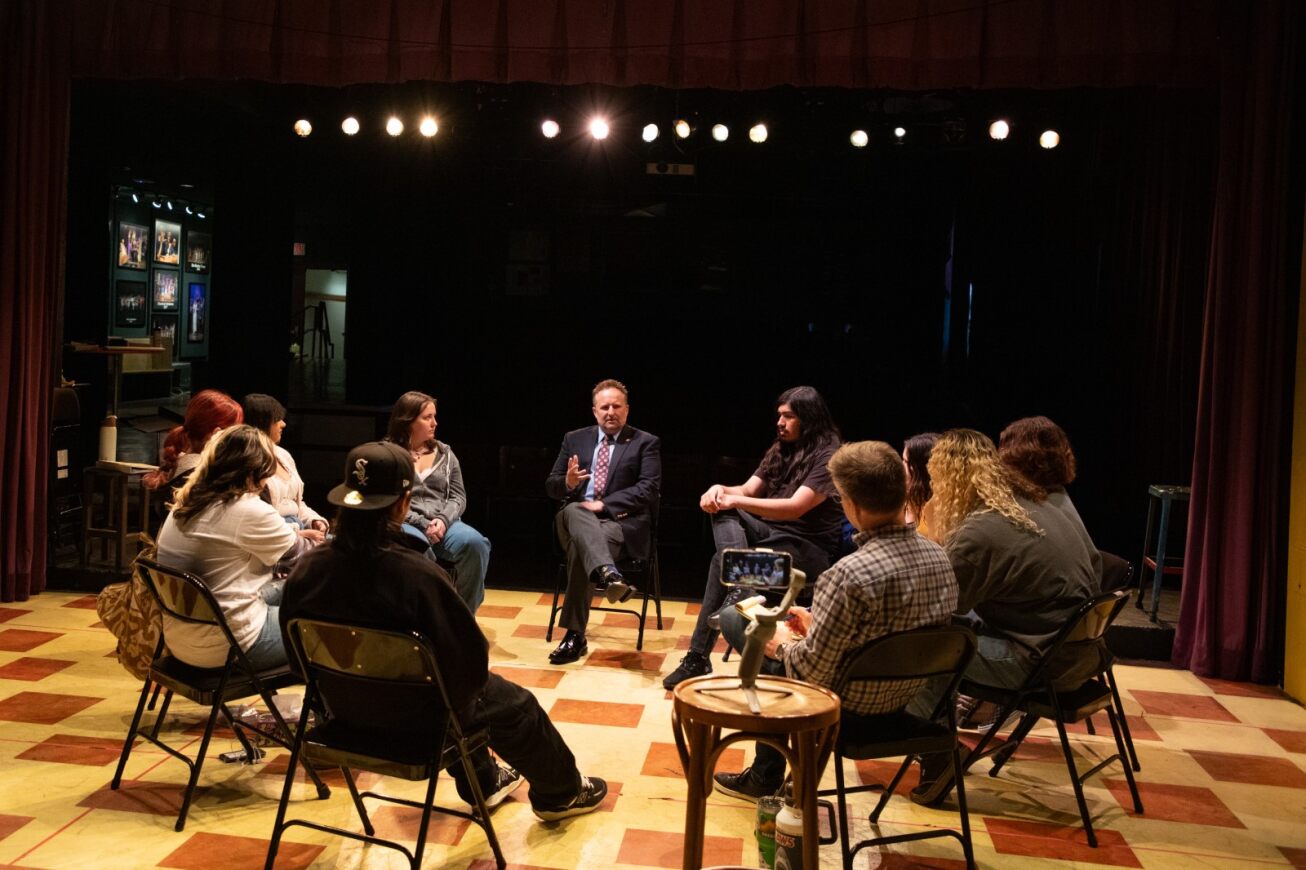
As the world has moved on from the pandemic, it has been made clear that some people have either fallen behind or been left behind. A major national trend is how students have fallen behind in classrooms and educators are looking for ways to rectify the issue.
“I think for me, I wanted to kind of hear from a generation of kids at a certain time of COVID and what it was like coming back to school, and what like was like,” Williams said. “I was totally blown away at this. I really didn’t even know half the picture of what was going on in these remarkable young lives of our children, and how much innocence was actually lost.”
The students were vulnerable as they went into intimate and, at times harrowing, tales of what it was like for them when the world shut down in 2020 and how the pandemic changed their way of living.
These students are just a small group of what is considered the “8th Grade cohort.” They were getting ready to go on spring break and planning 8th grade class trips and looking forward to starting high school. Instead, they didn’t physically go back to school until more than a year later.
Whatever plans they had for high school, like joining clubs or making new friends, were taken away from them. Instead, they started high school remotely.
For one student, her first time on Tucson High’s campus was when she took a tour at the start of 8th grade. She didn’t step foot on campus again until the end of freshman year when she went to get her ID photo taken.
“I want my freshman year back,” a student said. “I want my experiences back.”
“I feel like I’m still in 8th grade,” another student responded.
“I feel like I shouldn’t be applying to college right now,” another chimed in.
One of the connecting threads through the various conversations was how the students felt like most adults failed them. They get told their generation doesn’t want to grow up or doesn’t want to be outside, but they feel like they never had the chance to grow up and were forced into the online world just to survive.
As children, these students were forced to deal with a very traumatic experience, one that is shared globally, but differently, on top of whatever other adversity or trauma they already had. They felt like their childhood was taken away from them and, while they were trying to figure out what’s happening, had to learn how to do remote learning.
The internet became such a big part of their lives because they were forced to use it to stay on top of school and stay connected with their loved ones. Then they also turned to it for entertainment and to seek out friendships and relationships that they would have sought out in person at high school.
They also experienced the dark side of the internet, one which left a lot of them scarred.
There was no way to avoid the internet.
“There are things online that fundamentally changed the way I think and act,” a student said.
Right when things started to feel normal again and students were fully back in the classrooms, a new reality set in. COVID is here to stay, and it can spread like wildfire.
A couple of weeks after starting their sophomore year, their first year back in school, COVID cases went through the roof as suddenly thousands of students were back together and subject to exposure.
One student, who had celebrated her birthday the week prior and said she was just starting to feel like they had reached a sense of normalcy again, contracted COVID at school and, even though she was vaccinated, was bedridden for two weeks.
She yearned to have the stereotypical 16-year-old experience of getting her drivers license and was instead faced with the new reality of things.
Through it all, though, there was a light they all gravitated to: THMS drama teacher Art Almquist. Student after student started crying as they detailed how Almquist gave them a reason to continue going to school or helped give them meaning.
One student described how she used to be an A-B student who loved learning, but during COVID felt like she didn’t learn anything and started to feel like a failure. She worried she’d never be able to find that love for learning again and wondered if she should even bother attending college. Then she joined drama and was cast in a play.
Suddenly, she realized she wasn’t useless. Almquist helped her realize that.
All the students agreed that their drama class was a place of understanding and comfort, and at times a place they felt safe enough to open up.
For Williams, he was thankful Almquist was able to help facilitate a talk circle like the one they had and was also thankful for the students’ bravery in opening up how they did. He hopes to be able to continue to have more talk circles with different students in the future, as well as using these students’ voices to advocate for them.
“This allows me now to be a better advocate for the importance of what they want to see in their education going forward,” Williams said. “And I can hopefully make the life of another child in their situation, and other children coming up and students coming up, better off for it.
